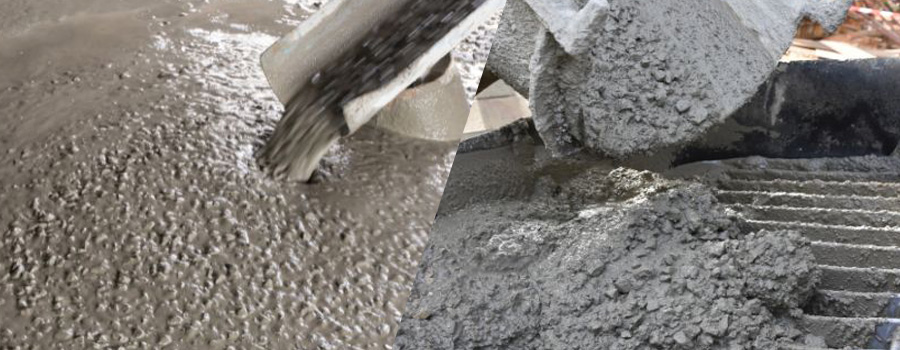Blog Post

Is Ready Mix Concrete Wet or Dry- A Complete Guide
When it comes to ready mix concrete, one of the key decisions to make is whether to use wet mix or dry mix concrete. Both options have their advantages and disadvantages, and the choice you make can significantly impact the outcome of your construction project. In this complete guide, we'll explore the differences between wet and dry mix concrete, helping you make an informed decision.
Wet Mix Concrete
Wet mix concrete, also known as ready-mix concrete, is a popular choice in the construction industry. It is a pre-mixed concrete that is delivered to the construction site in a ready-to-use state. Here are some key characteristics of wet mix concrete:
Consistency: Wet mix concrete is known for its consistent quality. It is produced in a controlled environment, ensuring that the proportions of cement, aggregates, and water are accurate every time. This consistency leads to a more predictable and reliable outcome in your construction project.
Convenience: Using wet mix concrete is convenient because it eliminates the need for on-site mixing. Construction crews can focus on placing and finishing the concrete rather than worrying about mixing ratios and the quality of the mix.
Speed: Wet mix concrete can be poured and set quickly, which is advantageous when time is of the essence. It is an excellent choice for projects with tight deadlines or when you need to complete a job swiftly.
Strength: Wet ready mix concrete typically achieves its full strength faster than dry mix concrete. This is important for projects that require early strength for structural stability.
However, wet mix concrete also has its drawbacks. It must be used shortly after delivery to prevent it from setting prematurely, which means you need to have your construction crew and equipment ready when the concrete arrives. Additionally, it may not be the best choice for remote or hard-to-reach construction sites where transportation logistics can be challenging.
Dry Mix Concrete
Dry mix concrete, also known as site-mix concrete, is prepared by mixing cement, aggregates, and additives on-site, usually at the construction site. Here are some key characteristics of dry mix concrete:
Flexibility: Dry mix concrete offers greater flexibility in terms of adjusting the mix proportions. This can be advantageous when you need to fine-tune the concrete mix to meet specific project requirements.
Longer Shelf Life: Dry mix concrete components can be stored separately for longer periods, reducing the risk of waste due to premature setting. This makes it a good choice for smaller projects or locations with unpredictable work schedules.
Reduced Costs: In some cases, dry mix concrete can be more cost-effective than wet mix concrete, especially for smaller projects where the cost of transportation and delivery may be prohibitive.
Less Environmental Impact: Dry mix concrete can be more environmentally friendly because it reduces the energy and emissions associated with transporting ready-mix concrete from a central batching plant.
However, there are downsides to using dry mix concrete as well. It requires on-site mixing, which can be labor-intensive and time-consuming. Achieving consistent quality can be challenging, as variations in mixing ratios can occur. Additionally, the setting time of dry mix concrete is typically longer than that of wet mix concrete, which may not be suitable for projects with tight timelines.
Conclusion
The choice between wet and dry mix concrete depends on your specific project requirements, budget, and timeline. Wet mix concrete is ideal for large-scale projects with tight schedules and where consistent quality is crucial. On the other hand, dry mix concrete offers flexibility and cost savings, making it a viable option for smaller projects or when on-site mixing is preferred.
Ultimately, consulting with a professional ready mix concrete supplier or contractor can help you make the best decision based on your unique circumstances. Regardless of your choice, proper handling, and curing of the concrete are essential to ensure a durable and long-lasting result for your construction project.